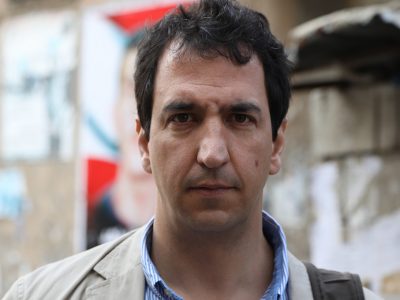By Elizabeth Kane
Standing before a group of community members in Longido, Tanzania, Business student Cameron Somogyi and his Industrial Design student partner Owen Mattan discussed how a handmade kiln could turn a local invasive plant into something valuable — biochar.
It was a small fire-based solution with a big impact, and one made possible through collaboration, conversation and months of planning across an ocean.
Somogyi was one of dozens of Carleton University students who partnered with remote communities through the Sprott School of Business’ Developing Creative Thinking course. The course connects students with communities in Longido, Tanzania, Mayo, Yukon, and Masset, British Columbia, where they co-develop solutions to local challenges or support youth programs. It often involves partnering with students in other faculties, including Environmental Engineering, Food Sciences, and Industrial Design.
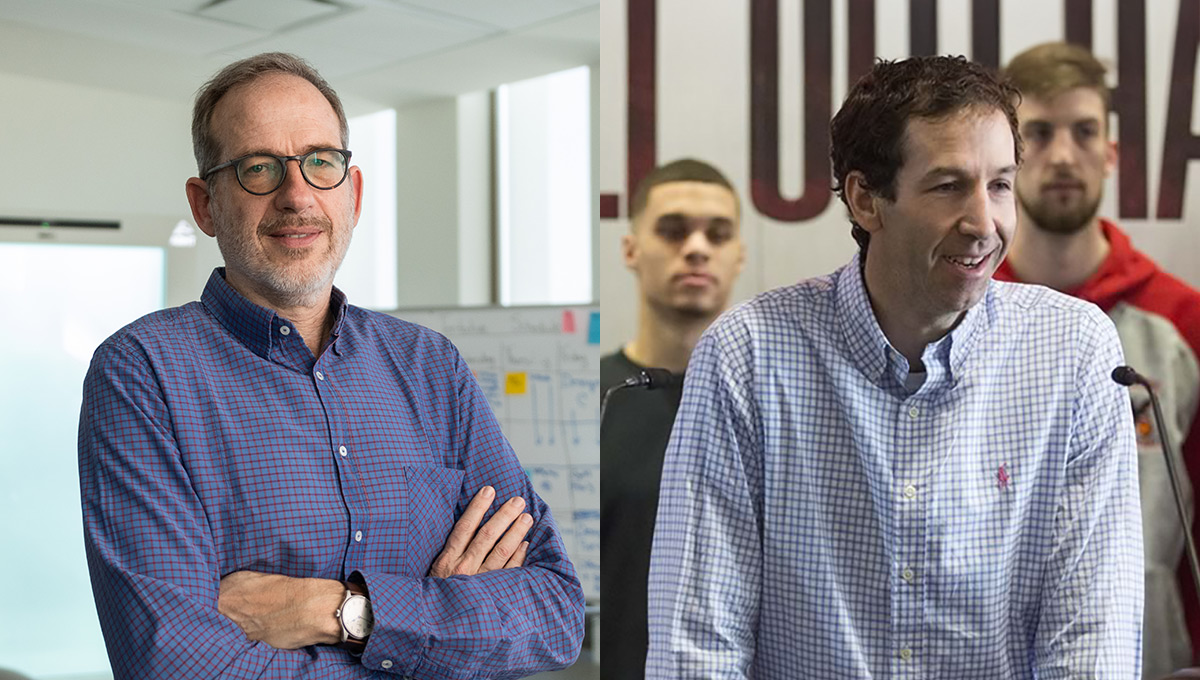
Program director Troy Anderson and Courts for Change stream manager Rob Smart
“The community tells us what projects they are interested in students working on, provides the local knowledge and shares details of the issues and ideas they have on how to approach the challenge,” says Prof. Troy Anderson, who founded the program in 2013.
The course is grounded in strong ties with local non-governmental organizations Project Tembo and Echo East Africa Impact Centre in Tanzania, the local schools in all partner communities, and operates through Carleton’s MOU with First Nation of Na-Cho Nyak Dun in Mayo, Yukon.
“We want the students to understand that when you’re going into a different community context and culture, you need to take the time to learn,” says Prof. Rob Smart, who leads the Courts for Change stream and is an assistant coach of the men’s basketball team.
“Don’t try and impose your solution.”
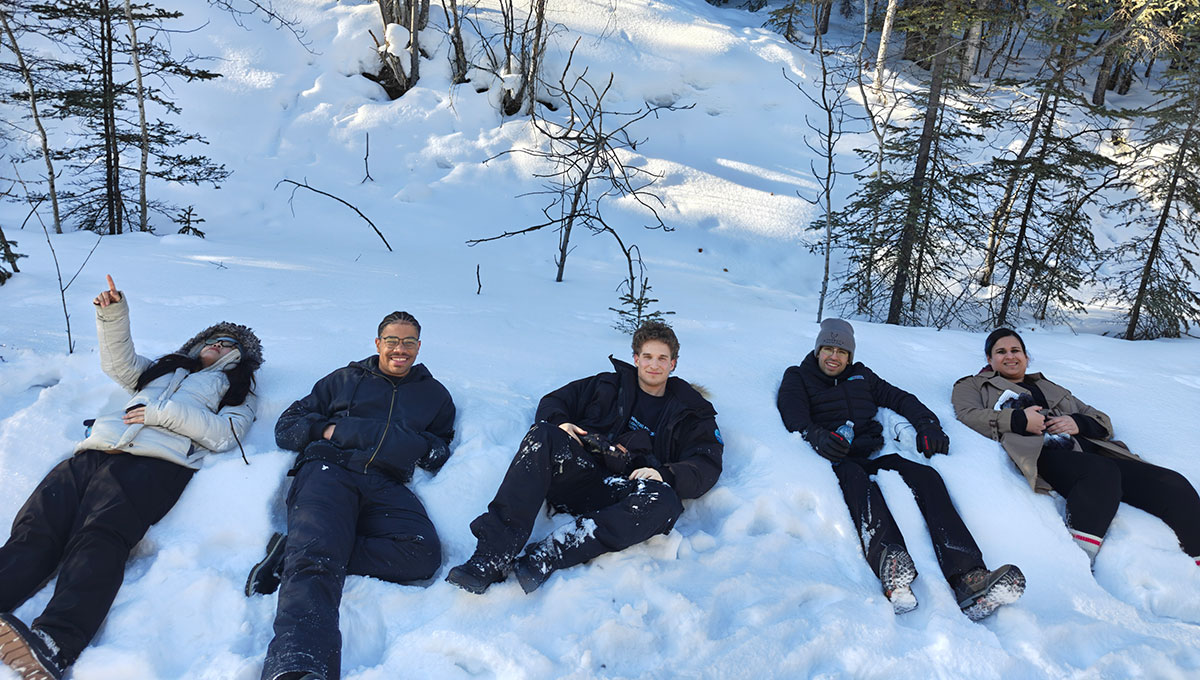
Designing for Impact
Over the course of the year, student teams work across disciplines to design and refine their projects before travelling to communities for up to two weeks to share their ideas and receive feedback. Students raise money to offset travel costs through personal initiatives and Carleton’s FutureFunder.
Somogyi’s project, part of the Longido, Tanzania stream, involved business and Industrial Design students working together in partnership with local Maasai to turn an invasive plant into a sustainable fuel source.
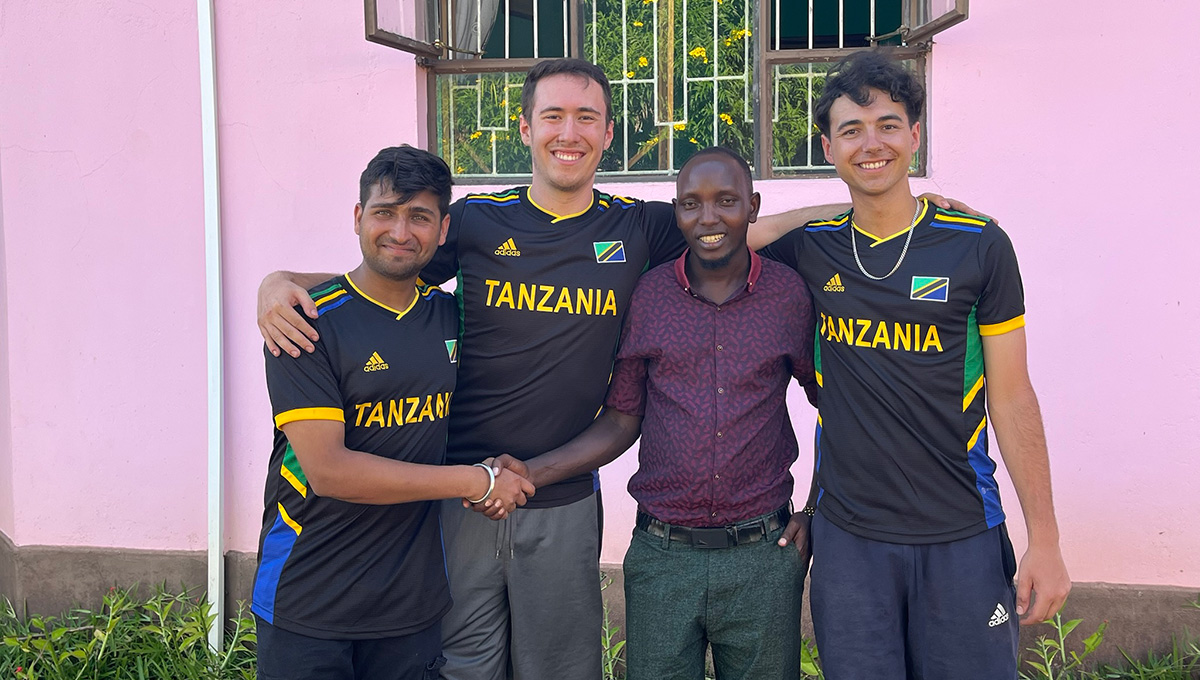
Students Aditya Chawla, Cameron Somogyi and Owen Mattan with Tembo representative in Longido, Tanzania.
“You can burn it and it’s more effective than firewood, it can be used in water filtration, mixed with fertilizer to help plants grow, used in construction or sold to customers,” he says.
“It was very cool to learn about the ways our product can improve everyday life.”
In Mayo, accounting student Aanya Baindur took part in the Northern Lights stream, working on a cultural revitalization project. Her team collaborated with the community to set up a system to record oral history and digitize books for research purposes. Later, she returned to assist community members with 3D scanning of family artifacts and significant cultural objects.
“We scanned a lot of incredible items,” she says. “People went out of their way to bring in their belongings and shared the history of the items that we scanned”
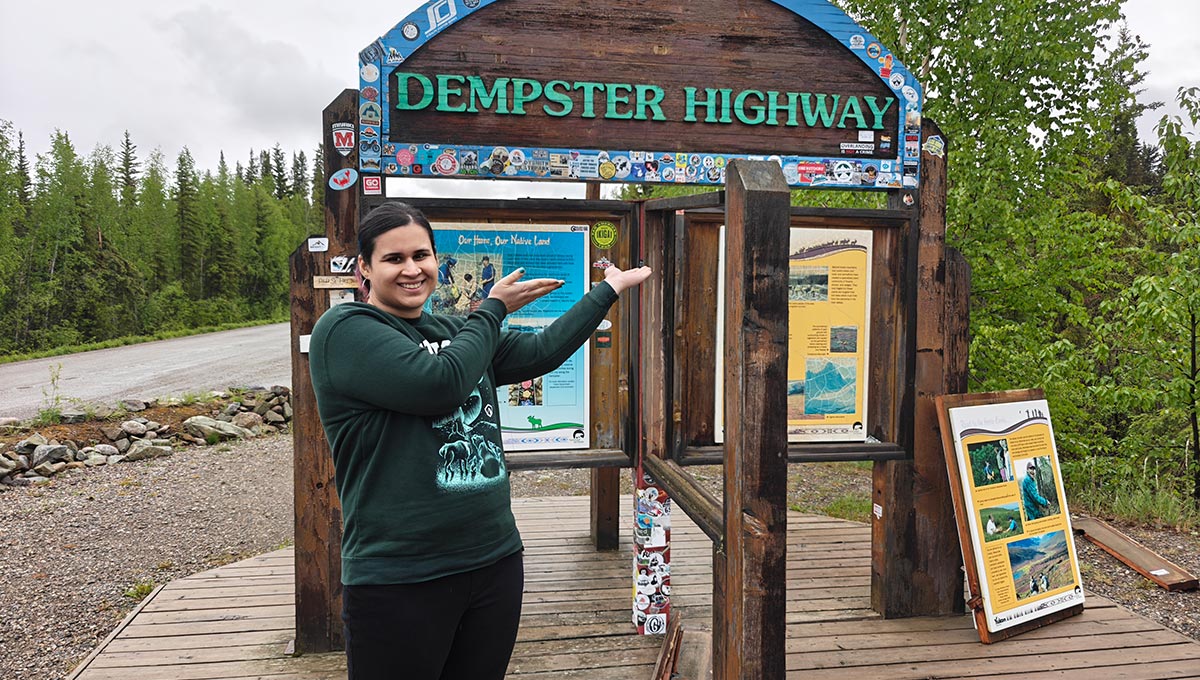
Student Aanya Baindur during a trip to Yukon.
The realties of working in remote areas – from changing weather to technology issues – required students solve challenges as they arose.
“The nature of the program necessitates that you have a very flexible approach and see your plan as more of a guideline,” she says.
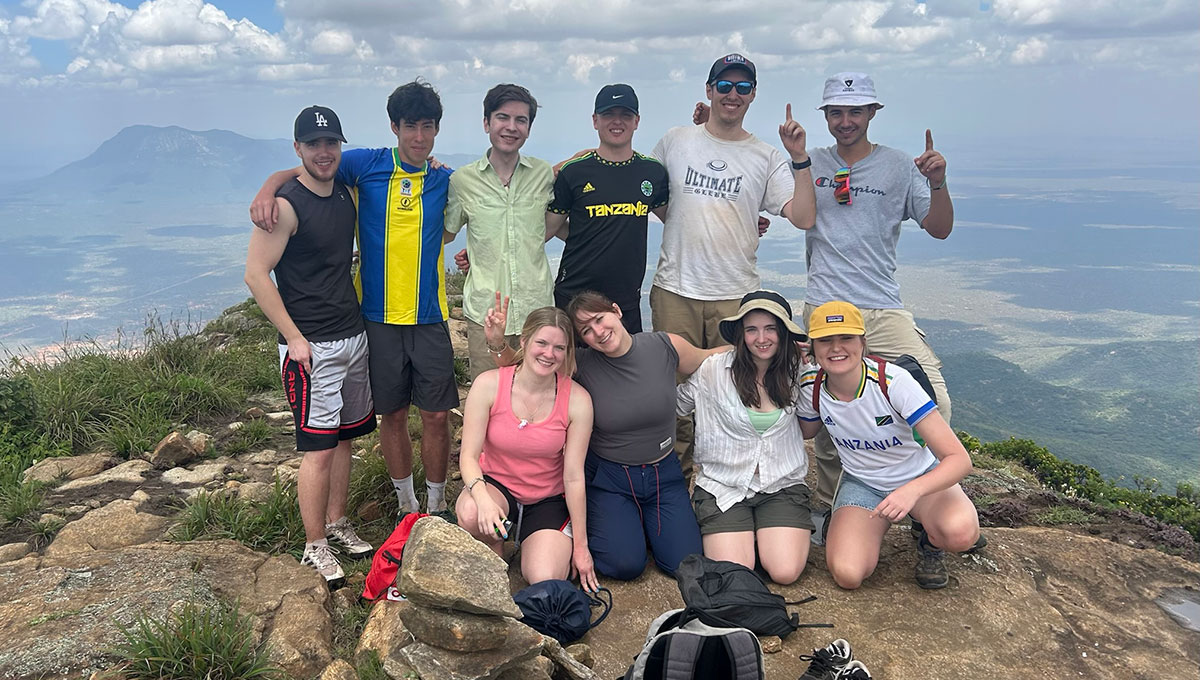
Building Community through Sport
The Courts for Change stream uses sport as a foundation for connection, wellness and youth engagement. To date, students have contributed to the design of basketball courts in Longido and Masset.
MBA student Kieran McRae participated in the Courts for Change stream’s trip to Masset. His team developed a plan to enhance the basketball court’s community identity, as well as run a youth basketball tournament and ongoing training program to support wellness.
“Basketball culture is huge in Masset,” says McRae, who was partnered with MJ Okado – point guard for the Ravens men’s basketball team.
“MJ developed the basketball program and I took a look at the business side of things,” says McRae.
“We both learned a lot from each other.”
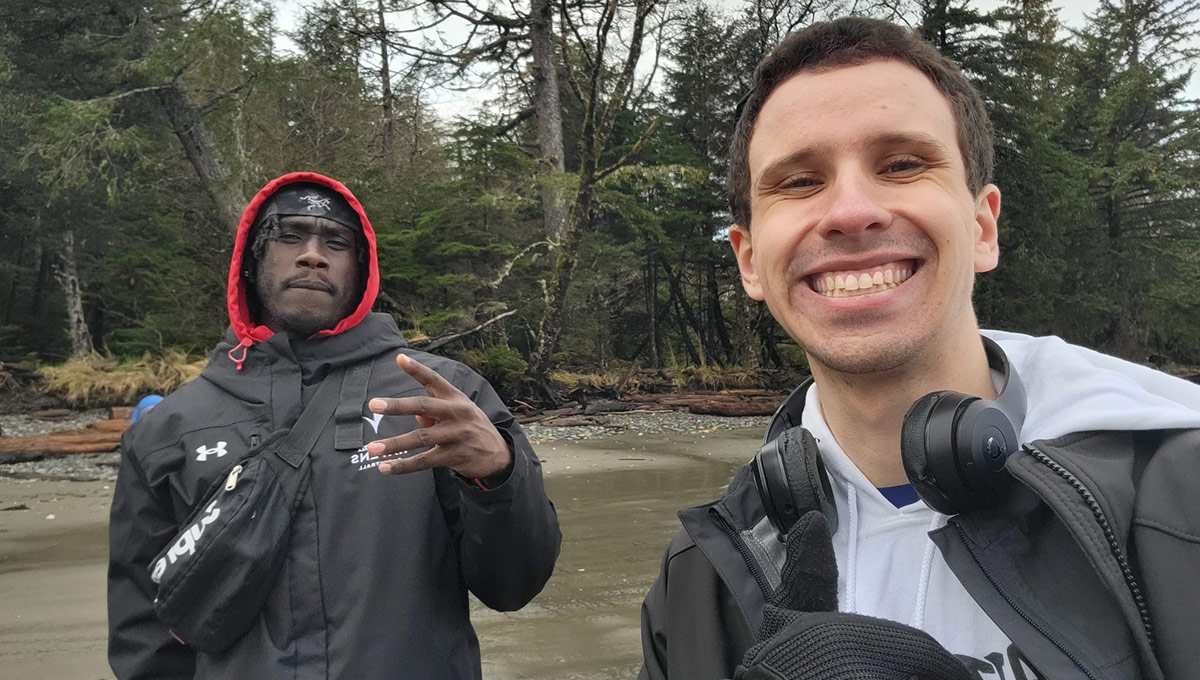
Students MJ Okado and Kieran McRae in Masset, BC
A member of the Tsimshian First Nation, McRae felt a connection to working in the Haida Gwaii archipelago.
Staying in the community gave him a deeper understanding of Haida culture and what reconciliation can look like in practice.
“It’s a beautiful way to learn more about reconciliation and First Nations resiliency when faced with adversity,” he says.
McRae adds the skills gained from the course will inform his future career.
“In this class we had hands-on experience collaborating with community partners to make the project successful,” says McRae.
“The course prepares you for the realities of the working world.”
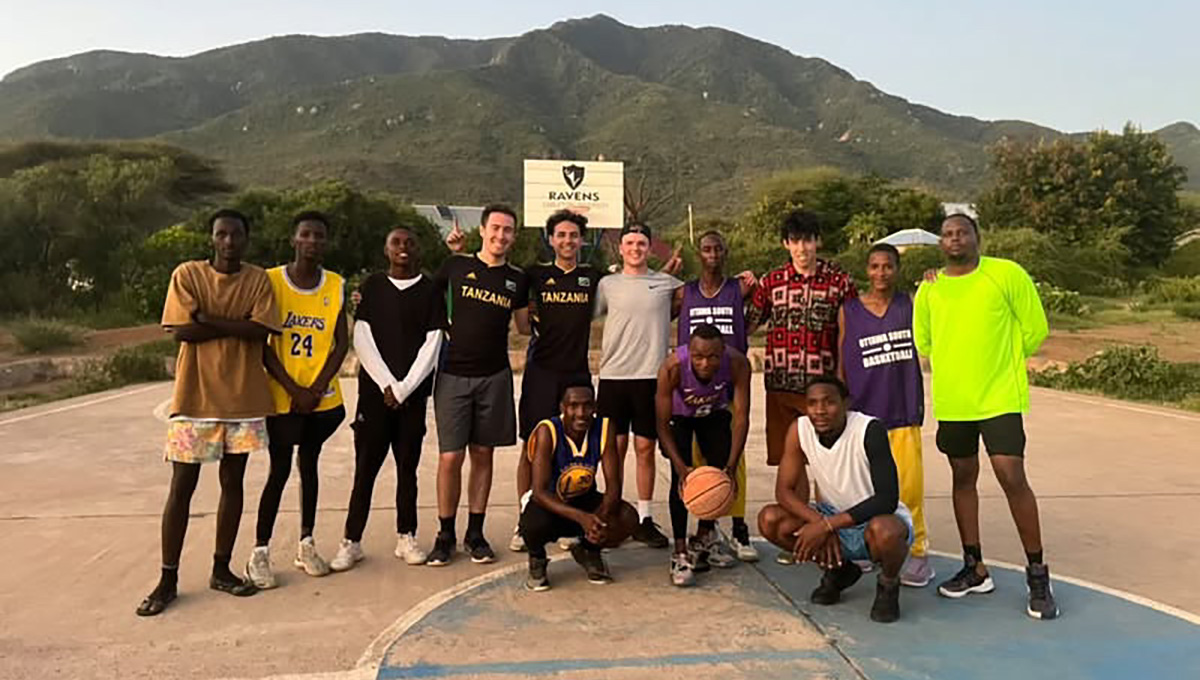
Monday, August 25, 2025 in Industrial Design, Innovation, Sprott School of Business
Share: Twitter, Facebook

